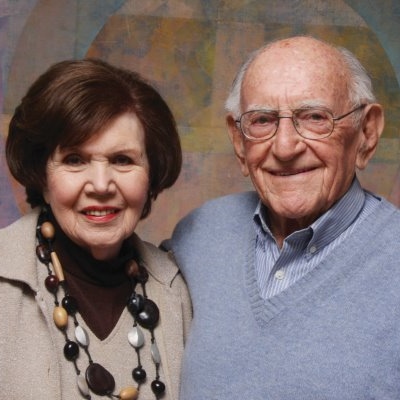
SA

The woman who lit up Soweto
JORDAN MOSHE
When Browde inadvertently joined the Johannesburg City Council in 1972 for the Progressive Party, she was the only candidate out of 14 to achieve this, and stood in opposition to the Nationalist Party.
She did so with one thing in mind: assisting those whom the apartheid regime had marginalised.
“Suddenly, entire disadvantaged communities such as Alexandra and Soweto used me as their representative on council. They came to my house with their problems.
“The government wasn’t doing good work in townships. It had a pathetic budget, and people were living in terrible conditions. They were living in small houses with no running water, and using a toilet in the yard. I once saw a small, four-room house that was accommodating 26 people. It was appalling.”
The problems were innumerable, but the one particular need which Browde chose to focus on was the lack of electricity. She explains, “Not only was there no electricity in homes, there were no streetlights either. Without lit streets, crime prevented people from going out after dark. It was unbelievably terrible.”
Browde says that she noticed that while the agenda of the council made provision for high-mast lighting in Soweto, this would cover only a small area. She took up the gauntlet, and challenged the decision, rallying the support of the media in her call for complete and effective lighting throughout Soweto. She emerged victorious, and lights were installed across the township, reducing crime and making the streets safer at night for residents.
However, she remained determined to bring electricity into homes as well. “I realised that they needed electricity inside, too,” she says. “People wanted to study, and they needed light for that. When he lived in Soweto, [Nelson] Mandela became a good friend of my late husband Jules, having studied with him at Wits [the University of the Witwatersrand]. He was studying by candlelight. It was unthinkable to me.”
After researching the minimum electricity requirements of township homes with an engineer, Browde brought a motion before the council to implement a cost-effective electricity solution. To her disgust, no one took her seriously.
“We worked out the minimum cost to be R18 million total,” she says. “Even in those days, it was still affordable. When I presented the motion, a United Party member on the executive told me that the residents of Soweto didn’t want electricity, that they liked coal fire because it reminded them of living in kraals. It was a disgusting excuse not to spend money.”
Browde turned to the media for help, putting out a call in Soweto’s World newspaper for letters of motivation from Soweto residents. Although she received a flood of heartfelt responses, the council refused her again, saying that she had written the letters herself. Browde eventually turned to Zac De Beer of Anglo American for assistance, and the businessman assured her he would raise the necessary funds through a consortium. He put the plan into effect in 1974.
De Beer, however, implemented a more sophisticated electricity supply solution of his own, coming at tremendous cost to residents who could ill-afford the rates. Browde also discovered that the already high cost was unrealistically inflated, with small homes racking up bills of more than R1 000 for the consortium to recoup its losses. She lobbied to have a flat rate for residents implemented, as well as for all amounts outstanding to be written-off.
Although the rates were implemented, the arrears were not set aside, and efforts to address the cost of electricity supply to the township remain an issue today. “There have been problems with electricity ever since,” says Browde. “De Beer thought he was doing good, but the consortium had no idea of township life. People in Soweto were paying more than we were in Houghton, and the problem persists today.”
Although local government has installed meters in recent years, the cost of electricity in Soweto remains high, and Browde remains committed to seeing it reduced. Today, at 92, she continues to visit the townships, and maintains the battle to improve the lives of others.
“There are better people in government now, and I’m waiting for them to do better,” she concludes. “But I’ll keep fighting. I’ve had a very disjointed career, but you have one life, and must live it the way it’s used best.”




